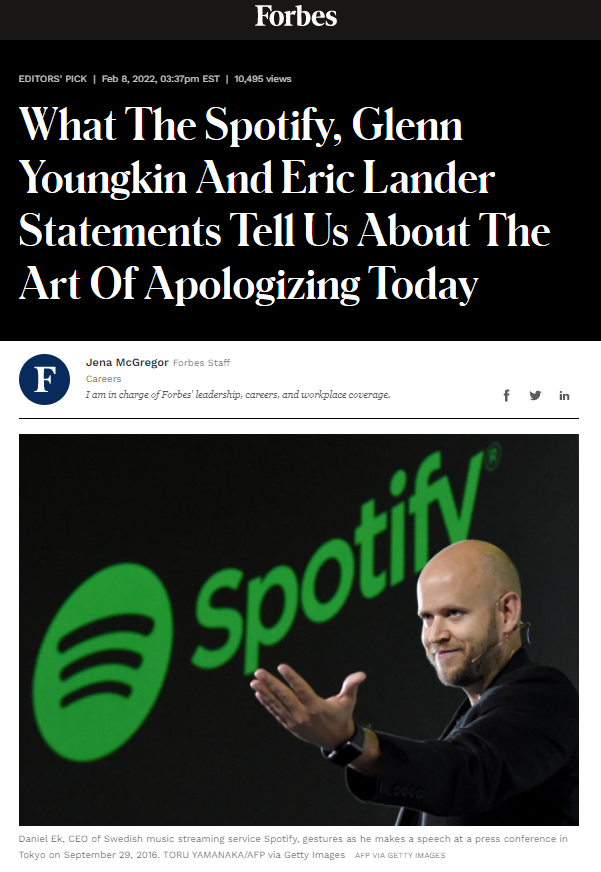Jena McGregor, Forbes, February 8, 2022

It’s been a big week for high-profile apologies.
Virginia Gov. Glenn Youngkin said he regretted what he called an “unauthorized” Twitter swipe from his team to a teen. Biden administration science adviser Eric Lander apologized for his treatment of subordinates. Joe Rogan said he was sorry for his use of the n-word in past podcasts just a week after an earlier apology about conversations on his show with vaccine skeptics. And Spotify CEO Daniel Ek apologized to staff for the impact on them of the racial slur controversy as the streaming service’s P.R. crisis continues.
But how effective apologies are often depends on how much responsibility the person takes—and increasingly important, who’s doing the listening. Communication pros say that while good apologies take unfettered ownership for what happened, the practicalities of a divided country mean it’s harder than ever to offer an apology that will appease everyone.
“In any discussion today it’s almost impossible to make everyone happy—and apologies are the same,” says Davia Temin, a communications adviser who is also a contributor to Forbes. “If you string a few of the right words together it can sound to people like it was an apology. … The art of the non-apology has been refined tremendously.” […read more]

